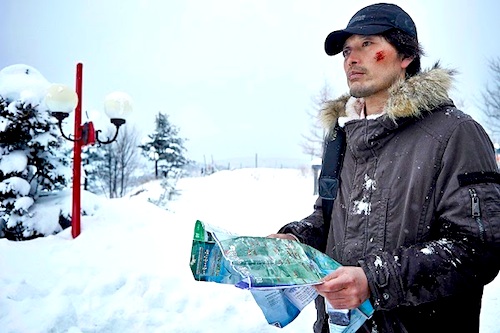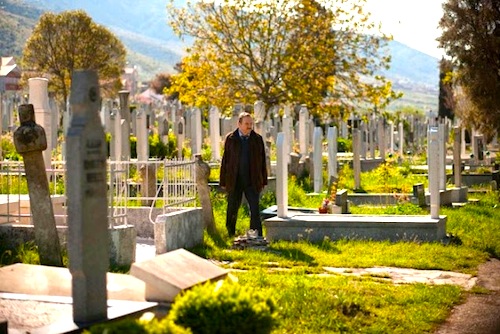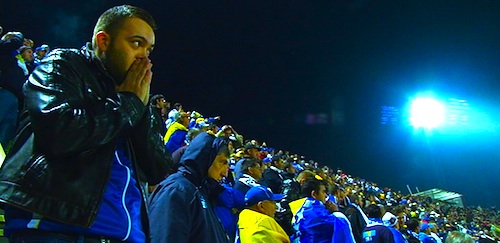By Joe Bendel. Is it the violent video games or just bad parenting? Regardless, a gang of high school boys has no remorse for the violent crimes they commit and post on video-sharing sites. In contrast, it is no secret why Lee Sang-hyeon resorts to killing. The grief-stricken father is determined to punish his daughter’s under-aged murderers in Lee Jung-ho’s Broken, which opens this Friday in Los Angeles.
Frankly, a good part of Lee already died inside following his wife’s slow death from cancer. Subsequently, he was not able to give his daughter Su-jin adequate emotional support, and now he will never be able to make amends. Jo Doo-sik and Kim Cheol-yong were the perpetrators of her rape and murder, but there was a witness—their socially awkward classmate, Kim Min-ki. Uncomfortable with his accomplice status, Kim texts the grieving father Kim Cheol-yong’s name and address. When Lee finds the privileged thug enjoying the video of Su-jin’s murder, his rage takes over. He then starts following the trail of the oblivious Jo Doo-sik.
Broken is fueled by justifiable anger, but it is a far cry from typically exploitative vigilante films. Frankly, it focuses nearly as much on Detective Jang Eok-gwan, the cop in charge of apprehending Lee and Jo. Dogged by Internal Affairs for his rough treatment of another murderous minor from a prior case, Jang understands Lee’s anguish only too well. While he admonishes his openly sympathetic junior to play it by the book, the extent of his internal conflict becomes increasingly clear as the manhunt closes in.

Although Jung Jae-young portrayed a similarly driven protagonist in Confession of Murder, he reaches a far higher level of soul-searing anguish as Lee. When unleashed, his fury is palpable, but it is even more chilling to watch his persona collapse in on itself. Yet, it is Lee Sung-min who gives the film its bitterly acidic heart. It is an uncommonly smart and subtle performance from an actor best known for television dramas and smaller feature supporting roles.
Broken also represents a considerable step up from Lee Jung-ho’s solid but relatively conventional genre outing, Bestseller. There are indeed tight and tense thriller elements at work, but the prevailing vibe is one of high tragedy. Lee’s adaptation of Keigo Higashino’s Japanese novel also pointedly critiques a legal system that too frequently compounds the pain of victims, while protecting the guilty. It is a bracing film that takes viewers to some very dark places. Recommended for those who will appreciate the harrowing ride, Broken opens this Friday (5/9) in Los Angeles at the CGV Cinemas.
LFM GRADE: A-
Posted on May 8th, 2014 at 11:34pm.

